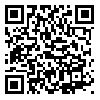Volume 3, Issue 1 (5-2009)
2009, 3(1): 29-40 |
Back to browse issues page
Download citation:
BibTeX | RIS | EndNote | Medlars | ProCite | Reference Manager | RefWorks
Send citation to:



BibTeX | RIS | EndNote | Medlars | ProCite | Reference Manager | RefWorks
Send citation to:
Cheraghi F, Dasta M, Ghorbani R, Abidizadegan A, Arabzade M. perceived self- efficacy, cognitive coping strategies and academic stress. Research in psychological health 2009; 3 (1) :29-40
URL: http://rph.khu.ac.ir/article-1-99-en.html
URL: http://rph.khu.ac.ir/article-1-99-en.html
1- , cheraghi.fereshte@ yahoo.com
Abstract: (14666 Views)
The purpose of this study was to evaluate the direct and indirect effect of perceived self- efficacy on academic stress through cognitive coping strategies. Data were collected from 435 medical science students of Shiraz University, from seven educational groups in 2009 which were selected via cluster sampling. In this study two questionnaires were used: Cognitive Emotion Regulation Questionnaire (Garnefski, 2001) and self- efficacy and stress Questionnaire (Zajacova, 2005). Data were analyzed using principal component analysis, confirmatory factor analysis and structural equation modeling. Measured model enjoyed adequate fit indexes. On the basis of the results, self – efficacy latent variable directly and indirectly affects academic stress through maladaptive and adaptive cognitive coping strategies. People with high perceived self- efficacy tend to use adaptive coping strategies and experience lower academic stress.
Type of Study: Research |
Published: 2009/05/15
Published: 2009/05/15
Send email to the article author
| Rights and permissions | |
 | This work is licensed under a Creative Commons Attribution-NonCommercial 4.0 International License. |





